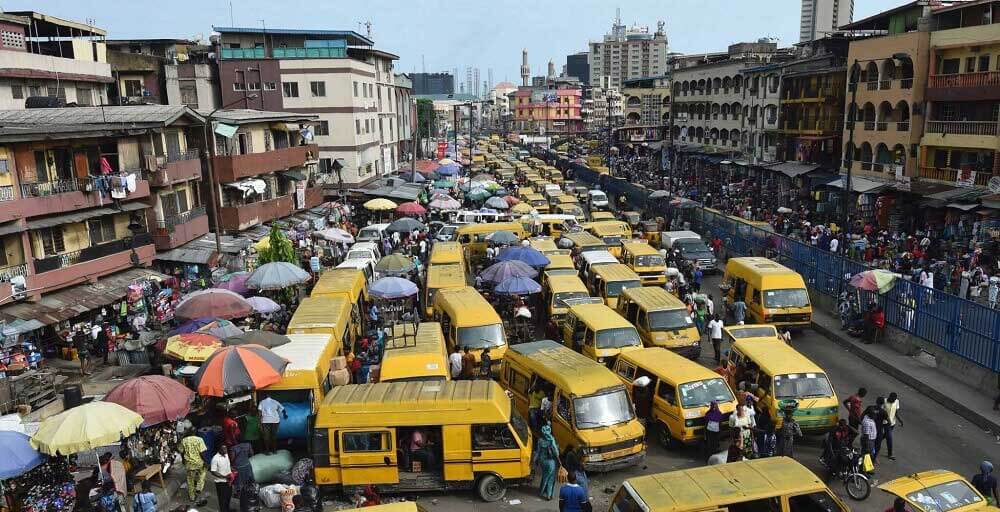Lagos Loses ₦1tn Annually To Traffic Gridlock – Govt

The average resident of Lagos spends between four and six hours daily in traffic, leading to an estimated N1tn annual loss in productivity, the Lagos State Government has revealed.
Speaking at the Second Lagos Traffic Conference held Tuesday in Victoria Island, Special Adviser to the Governor on Transportation, Hon. Sola Giwa, described the situation as a major economic drain and a public health concern.
Giwa, who addressed a gathering of stakeholders to mark the 25th anniversary of the Lagos State Traffic Management Authority (LASTMA), said traffic congestion in Lagos has moved beyond inconvenience to become a structural barrier to economic growth, mental well-being, and environmental sustainability.
“Lagos currently holds Nigeria’s highest vehicle density, with an estimated 1.2 million vehicles registered within its boundaries, representing over 30 percent of the national vehicle population.
“This growth, while a testament to our economic vibrancy, has placed enormous strain on our infrastructure. The average Lagosian spends between 4 and 6 hours daily in traffic, resulting in an estimated N1tn annual productivity loss. The stakes are no longer just about time; they are about lives, air quality, mental health, and economic efficiency,” Giwa stated.
He stressed that while LASTMA officers are deployed across all major corridors to manage over two million daily vehicular movements on Lagos’ 9,100-kilometre road network, the traffic challenge persists due to a combination of inadequate road capacity, driver indiscipline, and inconsistent right-of-way use by commercial operators.
According to him, public apathy and occasional hostility toward uniformed officers further compound the issue.
Despite these challenges, Giwa said the administration of Governor Babajide Sanwo-Olu has introduced several interventions aimed at easing congestion.
These include the Blue Line Rail — now operational — and the near-complete Red Line Rail, expanded ferry routes under LASWA, modernised BRT corridors, and the rollout of intelligent traffic systems (ITS) and synchronised traffic lights.
“LASTMA is not merely a regulatory agency; it is a strategic economic enabler, critical to Lagos’ continued growth and competitiveness,” Giwa noted.
He revealed that with 4,105 officers deployed citywide, the agency is estimated to help Lagos recover at least N400bn annually in economic value lost to gridlock — with each officer contributing nearly N97.5m annually by preserving man-hours, improving logistics, and reducing emergency response time.
He emphasised that the future of traffic management in Lagos lies in solutions, not rhetoric, adding that public cooperation is the game-changer.
“No traffic policy, no matter how well designed, can succeed without citizen cooperation.
“That is why we are mainstreaming transport safety education into school curricula, scaling the Lagos State Traffic Safety Advocacy Programme (LASTSAP), and opening up public feedback channels, including our new toll-free traffic complaint system.
“Everyone, cyclist or motorist, pedestrian or policymaker, has a role to play. Road safety is not a government responsibility alone. It is a shared social compact,” Giwa concluded.
In his address, Governor Sanwo-Olu who was represented at the event by his deputy, Dr. Obafemi Hazmat, said the state government is investing in intelligent transportation systems to enhance traffic management.
He called for cooperation among stakeholders, openness to change, and respect for traffic laws and officers.
“The LASTMA of tomorrow will be a technologically empowered agency, equipped to tackle the complex challenges of 21st-century urban mobility. We are investing in intelligent transportation systems powered by artificial intelligence, automated number plate recognition, and soon, drone surveillance to enhance traffic management and incident response.
“As we celebrate this silver jubilee, it is clear that efficient urban mobility requires the cooperation of all stakeholders. To our business community, transport unions, and every Lagosian, I urge partnership, openness to change, and respect for traffic laws and officers,” Sanwo-Olu said.
Lagos Loses ₦1tn Annually To Traffic Gridlock – Govt is first published on The Whistler Newspaper





![GoodGirl LA redefines what it means to be a 'Good Girl' [Review] GoodGirl LA redefines what it means to be a ‘Good Girl’ [Review]](https://storage.googleapis.com/ova-news.appspot.com/wp-content/uploads/2025/07/5ec7cbb0-0d7d-4622-b1e9-175d5d2fd4a4-biLT8w.jpg)